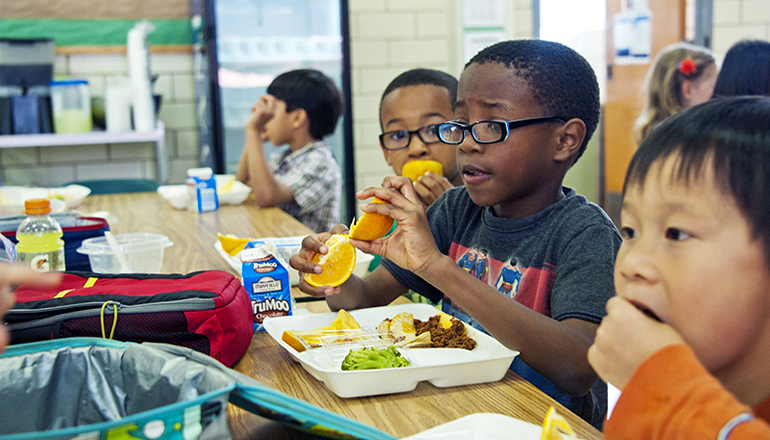Federal waivers put in place at the height of the pandemic allowed federal child nutrition programs more flexibility in delivering meals to households because kids were not at school. Those waivers are set to expire in a few months, and in states like Arkansas, groups working to fight hunger warn that more children, especially in rural areas, will be at risk.
Tamara Sandberg, director of U.S. Food Security and Nutrition for Save the Children, said the waivers allowed parents to pick up multiple meals for their kids at a time, and in one convenient location. “And the waivers allowed schools and other community partners to deliver meals right to their home, many, many more meals were distributed as a result,” Sandberg pointed out. “So we’re very concerned with the impact that is going to have on the rates of children receiving meals this summer.”
One in five Arkansas children faces hunger, and more than 48% of households with children rely on SNAP benefits.
Sandberg noted leaders from across the country will gather at the Rural Child Hunger Summit on April 28 to brainstorm ways to ensure rural kids don’t go hungry as the nation shifts out of pandemic-era policies.
Audrey Freshwater, Arkansas state director for Save the Children, said amid high gas and energy prices, demand for food assistance already is skyrocketing in rural Arkansas. Freshwater noted communities will begin to feel the impact, particularly schools. “Hungry children are more likely to have lower math scores repeat a grade and come to school late, or miss school entirely,” Freshwater outlined.
Freshwater emphasized Save the Children’s focus this summer will be on flexible and even unconventional access to meals for kids, so families don’t have to travel long distances to food pantries. “We’re really leaning in this summer and partnering with new organizations as well as our existing districts to continue to address summer learning,” Freshwater noted, “But also addressing summer feeding concerns, making sure that children do not go without meals, nor do their families.” She added throughout the pandemic, Save the Children has provided nearly 45 million meals to rural kids and their families nationwide.
(Photo by CDC on Unsplash)







